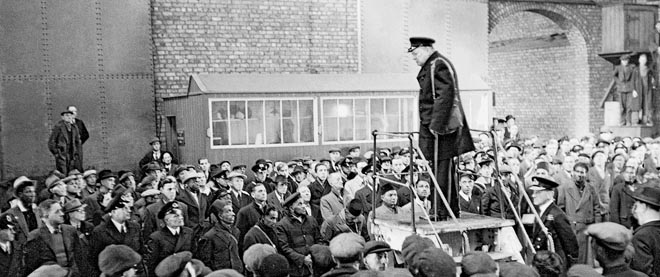Review: The Last Lion: Winston Spencer Churchill, Defender of the Realm, 1940-1965
By William Manchester and Paul Reid
IWM/Getty Images
Share

Twenty-three years after William Manchester began writing the third and last volume of his masterful biography of Britain’s most famous prime minister, the 1,232-page Defender of the Realm is finally done. Manchester cannot enjoy the accolades—after years of ill health, he turned his unfinished manuscript over to Paul Reid before he died in 2004. The struggle to complete the biography is mirrored on its pages by Winston Churchill’s own military and political fights. When appointed PM in May 1940, the 65-year-old was known largely for his bellicose language and already epic political failures that filled the first two volumes of this engrossing saga. Yet his larger-than-Earth persona was exactly what Britain needed. Within days, his remarkable oratory and sheer force of will turned its demoralized populace into a bulwark against relentless Nazi advances. “I may seem to be very fierce,” he said, “but I am fierce with only one man, Hitler.”
Defender is more than a recitation of the familiar Winston vs. Adolf battle. It’s a beautifully written, perfectly paced ode worthy of its subject, who was awarded the 1953 Nobel Prize in literature “for his mastery of historical and biographical description as well as for brilliant oratory.” The details revealed in its pages are engrossing. He was blessed with a constitution that “disposed of alcohol with exceptional efficiency.” His wartime intake included white wine at breakfast, Scotch in the morning, Pol Roger champagne at lunch with perhaps port, brandy or beer, a post-nap whisky then more champagne with dinner and “several doses of brandy” afterward. While the Allies won the war, Churchill lost the peace. A war-weary electorate crushed his party at the polls in 1945. He didn’t return to 10 Downing Street until 1951. But his greatest days were behind him. When asked what year he’d want to live over, he replied, “1940 every time. Every time.”
Visit the Maclean’s Bookmarked blog for news and reviews on all things literary